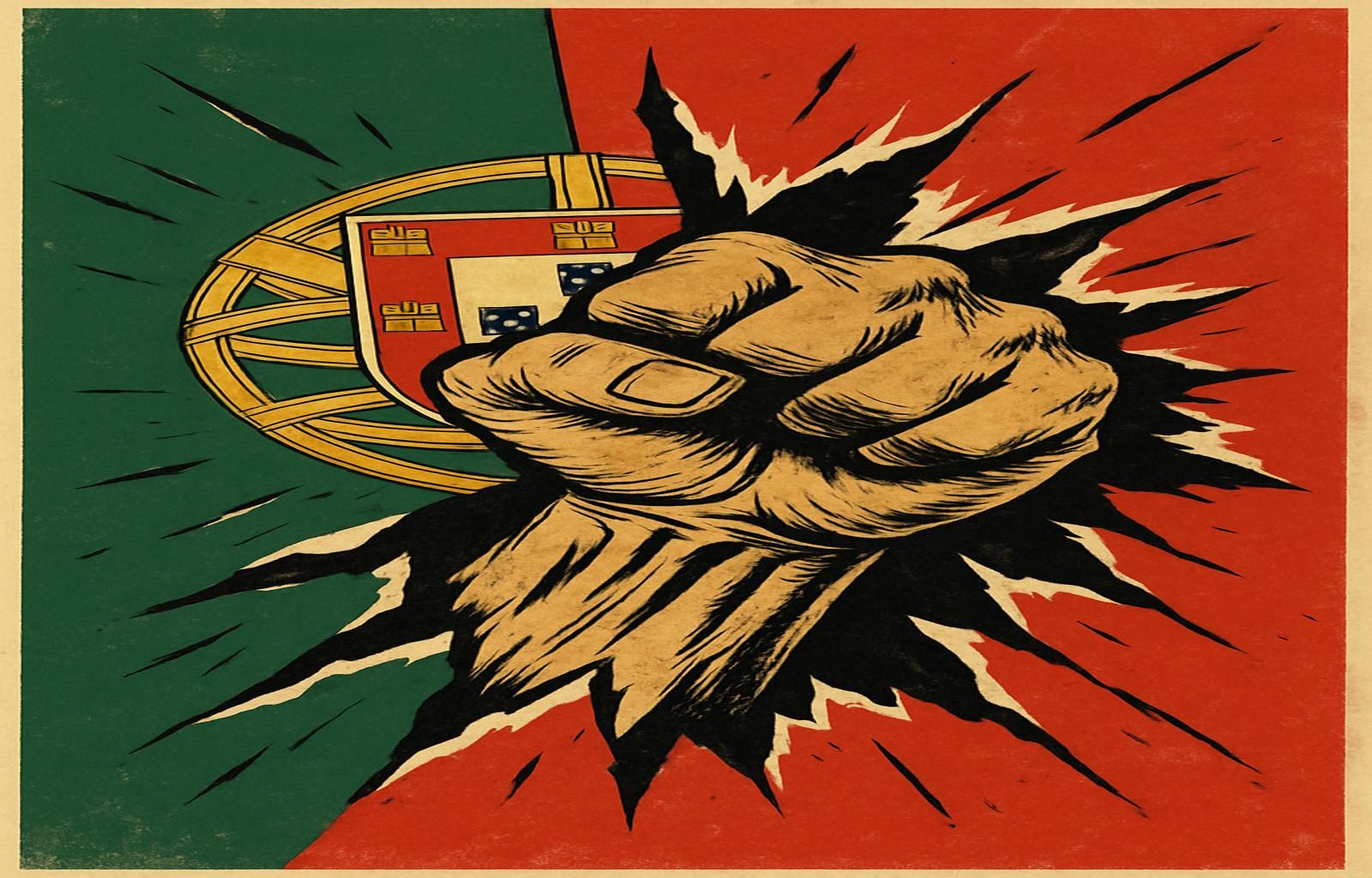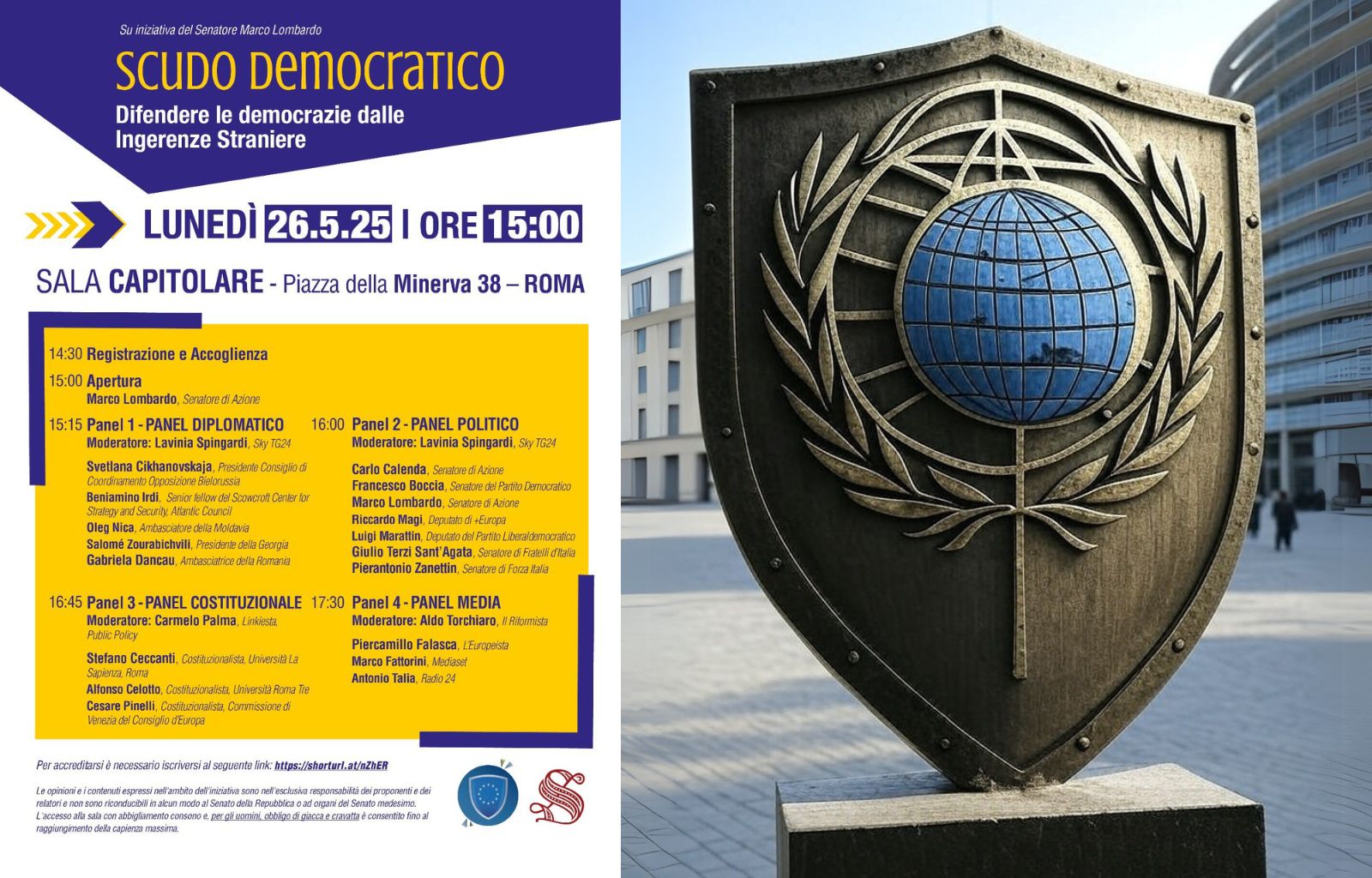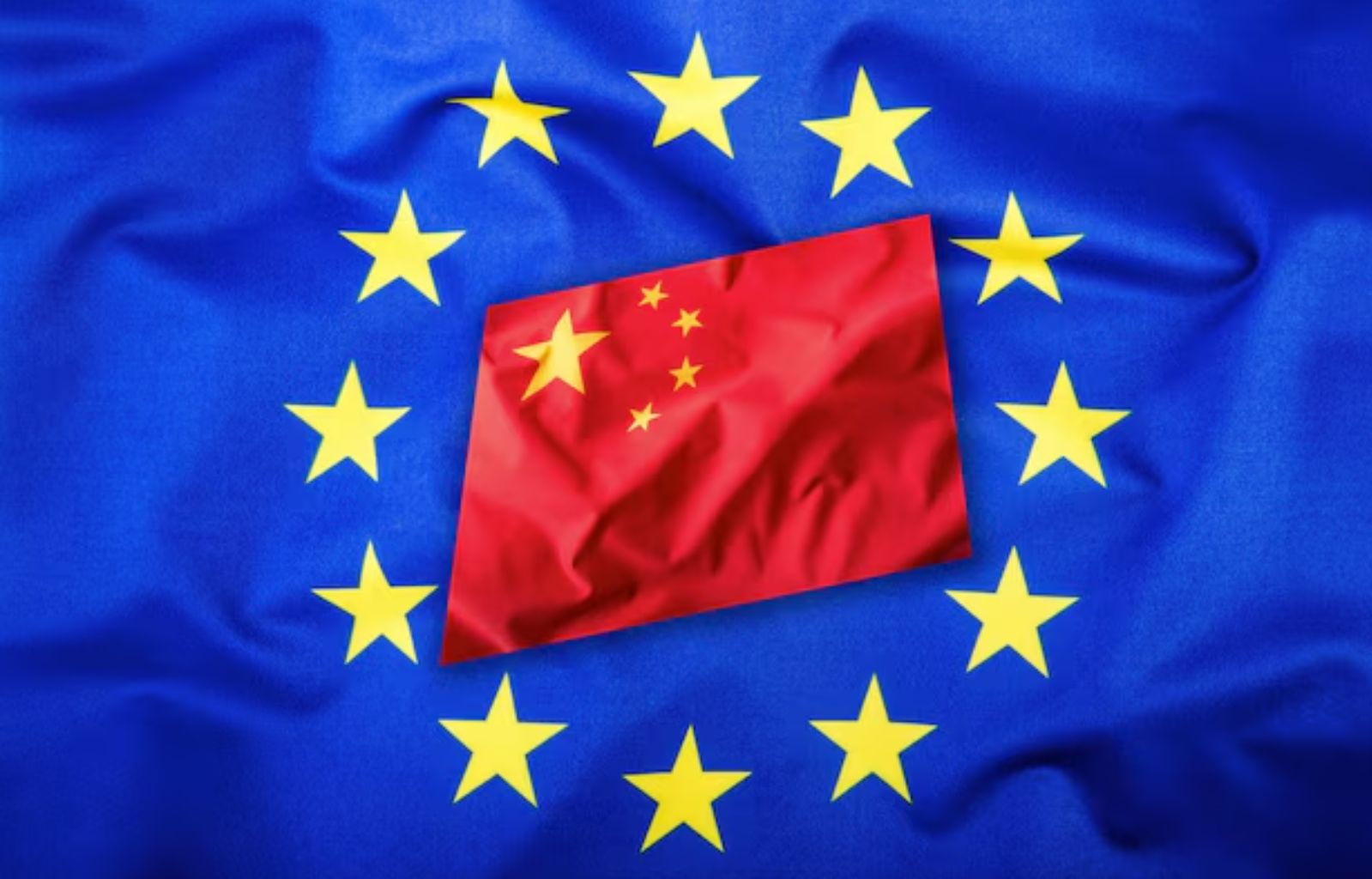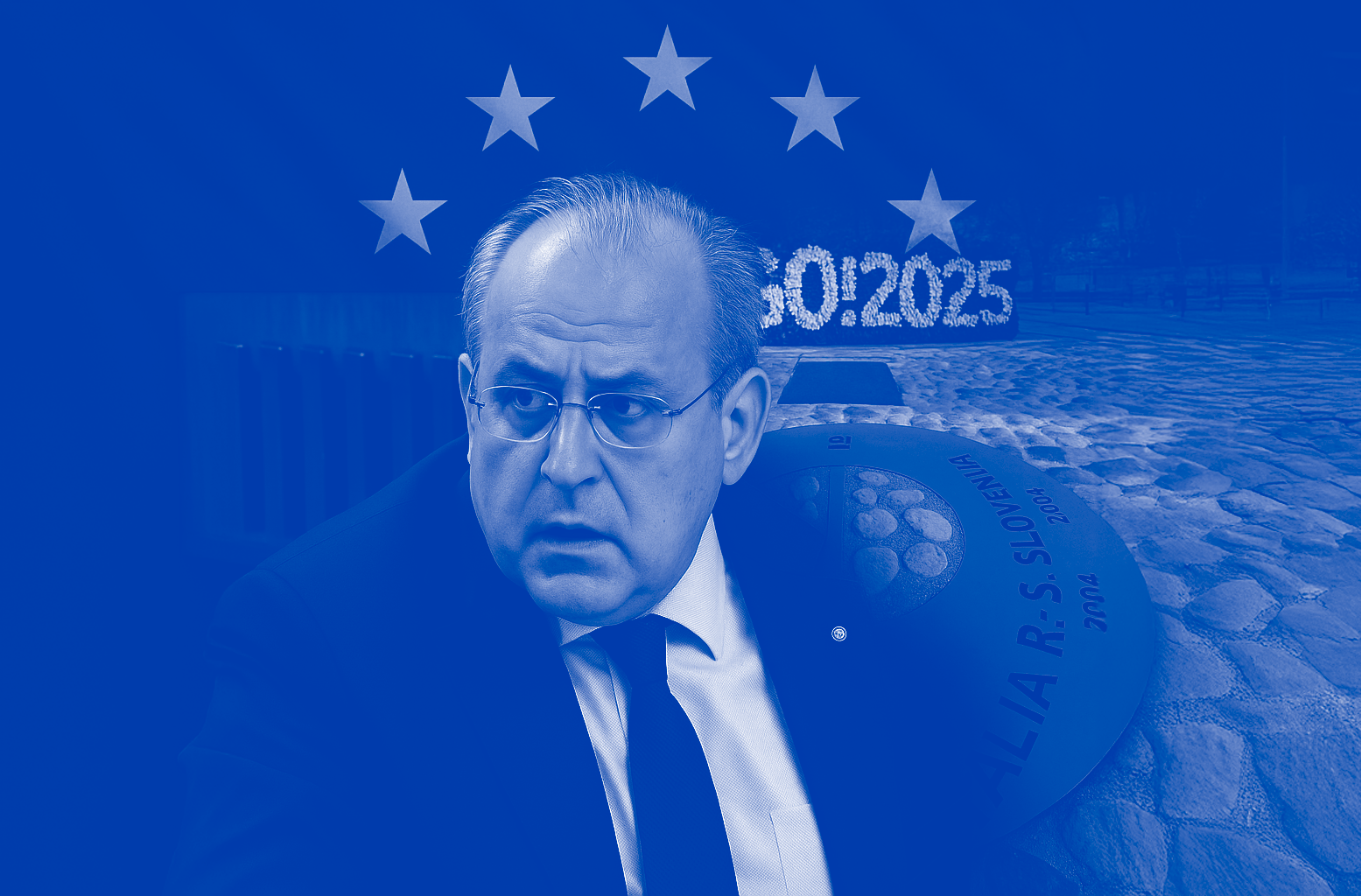Somebody talk about Portugal. The end of bipolarity and the crisis of representative democracy

In the days when the European news, we of L’Europeista in primis, gave prominence to the electoral consultations in Poland and Romania, the vote was also taken in Portugal, and the outcome was by no means a foregone conclusion.
The Portuguese elections of 2025 marked a profound and symbolically powerful break with the political architecture that had governed the country since 1974, the year of the Carnation Revolution. The relative victory of the centre-right coalition led by Luís Montenegro – the Democratic Alliance (AD) – was almost overshadowed by the unprecedented exploit of Chega, the far-right party led by André Ventura. With 22.6 per cent of the vote and 58 seats in Parliament, Chega obtained the same number of representatives as the Socialist Party, historical pillar of the Lusitanian centre-left, which was resoundingly defeated and forced to change leadership.
The significant turnout, the vote distributed over three poles and the absence of a clear majority outline a shattered and unstable parliamentary landscape, which risks paralysing the ability to govern. But the real earthquake is not numerical: it is political, cultural and communicative. Portugal, the last bastion of social-democratic resilience in Western Europe, has seen the emergence of a radical, populist, sovereignist right wing capable of successfully intercepting the deep-seated frustrations of large sectors of the population. This signal confirms the weld between the crisis of representation, the polarisation of public debate and the return to simplified forms of charismatic leadership.
From alternation to tripartition: the crisis of the system and the success of the anti-system
For fifty years, Portugal has experienced a relatively stable political system, based on the alternation between the Socialist Party (PS) and the Social Democratic Party (PSD), now the core of the AD coalition. This architecture ensured an institutional balance in a context marked by important economic reforms, a solid pro-European anchorage and a certain degree of social cohesion. The erosion of this dynamic has deep roots: the perceived convergence between the two major parties on many fundamental choices, the growing distance from popular demands, the fatigue of the middle classes in adapting to new economic and technological paradigms.

Chega was able to fit into this vacuum. Founded in 2019, it has grown from a single MP to a force capable of contending for political hegemony in the country. Its leader, André Ventura, is a former football commentator who has built his public profile on an aggressive, polarising, hyper-simplified style. Ventura has declared that he has ‘killed bipolarism’ and wants to represent those who have been ‘humiliated in these 50 years of regime’. His narrative rejects complexity, proposes an internal enemy (migrants, corruption, the establishment) and a language of immediate redemption.
The vote for Chega is a vote of protest, but also a vote of proposal – however extreme. It speaks to disillusioned youth, to those excluded from growth trajectories, to those nostalgic for a simpler order. And it does so directly: with effective slogans, a constant presence on social media, a pervasive use of disinformation and an emotional grammar. The similarities with Trumpism, Bolsonaro and some European illiberal right-wingers are obvious: Ventura is openly inspired by these models, adopting their communicative codes and symbolic postures.
Communication is Chega’s real weapon. Where traditional parties struggle to establish themselves in the media circuit, Ventura dominates the news cycle with strong statements, targeted provocations and an almost surgical ability to fuel the clash. His lexicon knows no mediation: he is the ‘basta’ of the party name (‘Chega’ means ‘Enough’). The party is structured around his figure, in a form of authoritarian verticality masquerading as popular participation. In this context, representative democracies become vulnerable: not only through numerical instability, but through the erosion of their capacity to construct shared meaning.
A struggling democracy between instability and social frustration
Portugal is going through a phase of chronic instability. The early elections of 2025 come less than a year after the fall of the Montenegro government, caused by a vote of no-confidence linked to possible conflicts of interest in its private company. A context of institutional fragility that has fuelled a sense of distrust towards politics, already fuelled by years of economic stagnation, housing crises, chaotic management of migration policies and perceptions of widespread corruption.
The government that will emerge from these elections will most likely be a minority one. AD won 88 out of 230 seats, far from the absolute majority threshold (116). Possible allies – such as the Liberal Initiative, with 9 MPs – have already declared that they want to remain in opposition. A grand coalition with the Socialist Party seems unrealistic, both for numerical reasons and because of the ideological distance and the particularly tough campaign between the two camps. The result is a deadlocked parliament, where every measure will have to be negotiated at great cost, with the risk of decision paralysis and new elections.
Montenegro is thus heading for the formation of a new minority government, destined to navigate in troubled waters and with extremely limited room for manoeuvre. Further complicating the picture is the fact that, according to Portuguese law, no new early elections can be called in the next six months. This means that the government that will emerge will have to survive in a highly polarised parliamentary climate and lack a cohesive majority, with its hands tied with respect to any structural initiatives.
The crisis of the Portuguese Socialist Party
Meanwhile, the Socialist Party is experiencing a deep leadership crisis. After nine years in government with António Costa, the handover to Pedro Nuno Santos proved unsuccessful. The PS lost over 400,000 votes and 20 deputies. Nuno Santos resigned immediately after the results, leaving the party in a delicate transition phase. His successor will have to decide whether to collaborate with Montenegro or maintain a hard line in opposition. Either way, the choices will have profound effects on the stability of the system.
Territorially, the geography of the vote is eloquent: Chega won in traditionally socialist regions such as the Algarve, Beja, Setúbal and Portalegre. An unequivocal sign of a change in the social basis of consensus. The diaspora also rewarded Chega, especially in Western European countries – with the exception of Scandinavia and Portugal. This confirms a trend already seen in other contexts: expatriate citizens, often in socio-political contexts dominated by sovereignist rhetoric, tend to project it onto the vote in their country of origin.
In between, the AD coalition presents itself as a moderate force but without a clear strategy to face the populist challenge. Montenegro has ruled out alliances with Chega, but does not have the numbers to govern alone. The risk is a repetition of the past: short governments, recurring crises, and a political system fraying under the weight of its own indecision. In the absence of a credible opposition and pragmatic proposals, the electorate takes refuge in radicalism.
All of this rewards Chega’s strategy, which, at this point, seems clear: exploit the fragility of the minority executive to position itself as the only credible alternative and, in perspective, as a majority force and the fault line of the immobility of a minority executive at the next election. These six months ultimately become a potential reservoir for increasing the exhausting, but lucrative, anti-establishment rhetoric.
The crisis of the left synonymous with the representative crisis
The Portuguese case is part of an established European trend. Even in countries with a long socialist tradition, such as Portugal, the resilience of representative democracy is being tested by the crisis of trust, the fatigue of complexity and the pervasiveness of the new right-wingers. Chega is no longer an outsider: he is a structured actor, communicating, expanding and aspiring to govern. And he does so with the tools of our time: polarisation, algorithms, identity storytelling.
In the Portuguese context, the growth of the radical right is not an anomaly, but the symptom of a broader malaise: that of citizens who no longer recognise themselves in the codes of mediation, and who seek identity shortcuts to face the challenges of the present. The communication of the Portuguese right follows international models, but declines them in a local form: it is nationalist, but also municipalist; it is aggressive, but capable of camouflaging itself in everyday language.
In this framework, the European Union has a difficult task: to accompany the member states in managing the rift between institutions and society. Portugal is only the latest example of a widening rift. Without a new social pact, new forms of representation and more effective and participatory communication, the populist temptation will continue to grow. And with it, the risk of a democracy that, although formally intact, loses its vital link with the people.
The lesson is clear: it is not enough to win elections. We need to rebuild a shared sense, a common vision, and an ability to listen that today, in traditional politics, seems increasingly distant.











